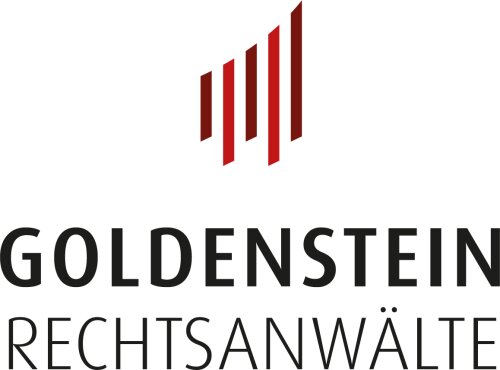
Best Communications & Media Law Lawyers in Germany
Share your needs with us, get contacted by law firms.
Free. Takes 2 min.
Or refine your search by selecting a city:
List of the best lawyers in Germany

About Communications & Media Law in Germany:
Communications & Media Law in Germany governs the various aspects of the media industry, including print, broadcast, online media, advertising, telecommunications, and more. This area of law focuses on protecting freedom of expression, privacy rights, intellectual property, and ensuring fair competition within the media sector.
Why You May Need a Lawyer:
You may need a lawyer specializing in Communications & Media Law in Germany if you are dealing with issues such as defamation, copyright infringement, data protection, media licensing, advertising regulations, or disputes with media organizations. A lawyer can provide guidance, represent you in legal proceedings, and help protect your rights in these complex legal matters.
Local Laws Overview:
In Germany, Communications & Media Law is governed by a combination of federal and state laws. Some key aspects include the Grundgesetz (Basic Law), which guarantees freedom of the press and freedom of expression, the Rundfunkstaatsvertrag (Broadcasting State Treaty) regulating the broadcasting sector, and the Telemediengesetz (Telemedia Act) governing online activities. It is important to comply with these laws to avoid legal consequences.
Frequently Asked Questions:
1. What is considered defamation in Germany?
In Germany, defamation refers to any statement that harms someone's reputation. It can be prosecuted as a criminal offense under Section 187 StGB (Criminal Code) or result in civil liability for damages.
2. How do I protect my intellectual property in the media industry?
You can protect your intellectual property in Germany by registering trademarks, patents, or copyrights. A lawyer can help you understand your rights and enforce them against infringement.
3. Are there specific regulations for advertising in Germany?
Yes, advertising in Germany is regulated by the Gesetz gegen den unlauteren Wettbewerb (Act Against Unfair Competition) and other laws. Advertisements must be truthful, not misleading, and comply with specific rules regarding product labeling, comparative advertising, and more.
4. Can I use someone else's content on my website without permission?
No, using someone else's content without permission can constitute copyright infringement in Germany. It is important to obtain the necessary licenses or permissions to avoid legal issues.
5. What privacy regulations should I be aware of in Germany?
In Germany, data protection is governed by the Datenschutzgrundverordnung (General Data Protection Regulation) and the Bundesdatenschutzgesetz (Federal Data Protection Act). These laws set strict requirements for the collection, processing, and storage of personal data.
6. How can I resolve a dispute with a media organization in Germany?
If you have a dispute with a media organization in Germany, you can seek resolution through negotiation, mediation, or litigation. A lawyer specializing in Communications & Media Law can help you navigate the legal process and protect your interests.
7. What are the consequences of spreading fake news in Germany?
Spreading fake news in Germany can have serious consequences, including criminal charges for defamation, incitement to hatred, or violating press laws. It is important to verify the accuracy of information before sharing it publicly.
8. Can I be held liable for user-generated content on my website or social media platform?
As the operator of a website or social media platform in Germany, you may be held liable for user-generated content under certain circumstances. It is essential to implement measures to prevent illegal content and comply with legal requirements to avoid liability.
9. What are the restrictions on freedom of expression in Germany?
While Germany upholds freedom of expression as a fundamental right, there are restrictions in place to protect against hate speech, incitement to violence, and other forms of illegal speech. It is crucial to understand the limitations on freedom of expression to avoid legal consequences.
10. How can I stay informed about changes in Communications & Media Law in Germany?
To stay informed about changes in Communications & Media Law in Germany, you can follow updates from legal publications, attend industry events and seminars, or consult with a lawyer specializing in this field. Additionally, governmental bodies and organizations such as the Bundesministerium für Verkehr und digitale Infrastruktur (Federal Ministry of Transport and Digital Infrastructure) provide valuable resources on legal developments.
Additional Resources:
For additional resources related to Communications & Media Law in Germany, you can consult the website of the Deutscher Anwaltverein (German Bar Association), the Bundeszentrale für politische Bildung (Federal Agency for Civic Education), or the Bundesnetzagentur (Federal Network Agency). These resources offer information, guidelines, and support for individuals seeking legal advice in the media sector.
Next Steps:
If you require legal assistance in Communications & Media Law in Germany, it is recommended to seek advice from a qualified lawyer specializing in this area. You can schedule a consultation to discuss your legal needs, understand your rights and obligations, and receive guidance on how to proceed in your specific situation.
Lawzana helps you find the best lawyers and law firms in Germany through a curated and pre-screened list of qualified legal professionals. Our platform offers rankings and detailed profiles of attorneys and law firms, allowing you to compare based on practice areas, including Communications & Media Law, experience, and client feedback.
Each profile includes a description of the firm's areas of practice, client reviews, team members and partners, year of establishment, spoken languages, office locations, contact information, social media presence, and any published articles or resources. Most firms on our platform speak English and are experienced in both local and international legal matters.
Get a quote from top-rated law firms in Germany — quickly, securely, and without unnecessary hassle.
Disclaimer:
The information provided on this page is for general informational purposes only and does not constitute legal advice. While we strive to ensure the accuracy and relevance of the content, legal information may change over time, and interpretations of the law can vary. You should always consult with a qualified legal professional for advice specific to your situation.
We disclaim all liability for actions taken or not taken based on the content of this page. If you believe any information is incorrect or outdated, please contact us, and we will review and update it where appropriate.
Browse communications & media law law firms by city in Germany
Refine your search by selecting a city.













